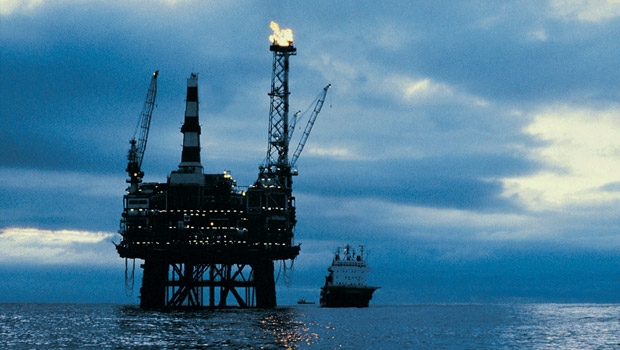Podcast: Play in new window | Download
Subscribe: RSS

A Petrobras deep water drilling rig off Brazil. After you get five miles down, you still might not hit oil.
Here’s what they were saying about Brazil six years ago: it was entering a new oil bonanza, it was going to be bigger than Saudi Arabia, it was going to enjoy energy independence, all the graphs of oil production were going straight up, through the roof, to the moon, Alice. It’s oil reserves were 50 billion…no, 100 billion…wait, 240 billion barrels. (How do you sing “Happy Days are Here Again” in Portuguese?)
Sound familiar? Sound like what the same folks are saying about the United States today? Funny how they’re not singing about feliz dias in Brazil any more. How did things work out for them down there?
Not good, according to a long piece in the Washington Post yesterday. Oil production is flat or falling; Imports of gasoline, sold to the public below cost to prevent inflation (and revolution) are climbing; the state oil company, Petrobras, is debt-ridden and has lost one-third of its value on the stock market; the second-largest oil company, OGX, declared bankruptcy in October.
The euphoria was based on the “discovery” of vast new oil “reserves.” (In Portuguese, the root words from which “discovery” and “reserves” are derived also translate as “a vague hope there’s something down there.” This is also true of Arabic and English, as spoken in the oil patch.)
The newly discovered Brazilian “reserves” were under a mile and a half of water, plus two miles of rock, and another mile and a half of salt. Drilling into this oil and getting it to market would require the most expensive and difficult corporate project in the world, at an estimated cost of $237 billion. Still, as Brazil’s president declared at the time of the “discoveries,” it seemed Brazil had won the lottery.
They must have misplaced the winning ticket.
Explanations abound for the sad state of the Brazilian bonanza. A favorite: onerous government regulation of Petrobras. For example, Petrobras is required to build its drilling platforms, ships and heavy equipment in Brazil, which has created jobs but has not guaranteed that the jobs will be done well, efficiently or on time. Losses on gasoline imports have cost the company $20 billion since 2006. Brighter prospects in America have lured away flighty investors. And there is some truth to all these excuses.
But the real problem is dry wells. For all its titanic struggles, massive spending and relentless optimism, Petrobras is managing to wring a paltry 300,000 barrels of oil per day from its vast undersea “reserves.” In 2008 OGX raised more than $4 billion dollars, in Brazil’s largest ever initial public offering of stock, for drilling in the deep blue sea. It went bankrupt last year because the wells it drilled didn’t hit oil.
Thank goodness we live in a country that is entering a new oil bonanza, that is going to be bigger than Saudi Arabia, that is going to enjoy energy independence, where all the graphs of oil production are going straight up, through the roof, to the moon, Alice.
Wait. This song sounds familiar…..
The songs the oil industry and its sycophants sing to attract investors, to get their people elected and re-elected, to distract us from impending disaster, are not true. What is true is this: the world is running perilously short of petroleum, without which it cannot function; recovering the remnants, whether by deep water drilling or deep rock fracking, is going to be ever more expensive, difficult and dangerous (see “Deepwater Horizon”).
In the oil business, feliz dias are gone forever, and not just in Brazil.
See also Top UK Scientists: Peak Oil is Here; and Brazil: Another Miracle Falters
This focus on beliefs and realities of oil supply in Brazil and the US is like some aged people arguing about the merits of their tipples and completely ignoring consideration of the advantages of good food and exercise. Oil supply is necessary but not sufficient for the operation and maintenance of the technological systems of both countries.